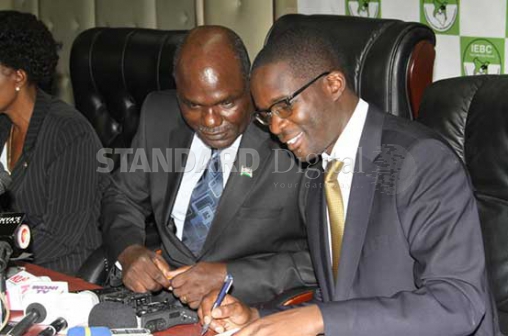×
The Standard e-Paper
Home To Bold Columnists

The Independent, Electoral and Boundaries Commission (IEBC) has finally unveiled regulations that will operationalise the Elections Law.
Commission chairman Wafula Chebukati has sent the Elections (Technology) Regulations, 2017 to the National Assembly for approval.